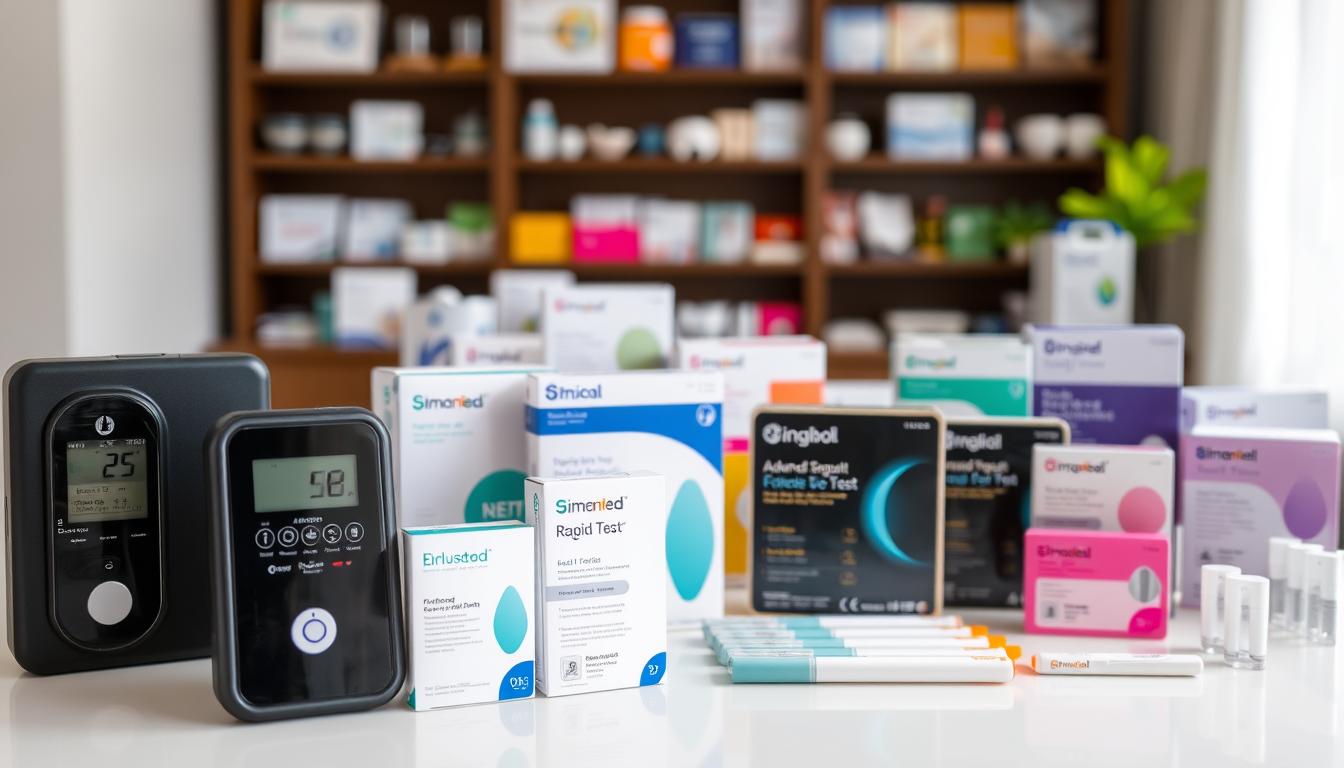This post contains affiliate links. As an Amazon Associate I earn from qualifying purchases
Maintaining a healthy blood pressure is crucial for overall well-being and reducing the risk of cardiovascular diseases. Holistic blood pressure management involves a combination of lifestyle changes and natural techniques that can significantly impact your health.
Managing blood pressure naturally is not just about avoiding medication; it’s about adopting a healthier lifestyle. This includes dietary changes, increased physical activity, and stress management. By incorporating these natural ways to control blood pressure, individuals can take a proactive approach to their health.
Key Takeaways
- Understand the importance of holistic blood pressure management
- Learn natural techniques for controlling blood pressure
- Discover lifestyle changes that impact blood pressure
- Explore dietary adjustments for healthier blood pressure
- Find out how physical activity can help manage blood pressure
Understanding Blood Pressure and Its Importance
Understanding blood pressure is essential for maintaining cardiovascular health and preventing complications associated with hypertension. Blood pressure is a critical health metric that indicates the force of blood against the artery walls, and managing it effectively is crucial for overall well-being.
What is Blood Pressure?
Blood pressure is measured in millimeters of mercury (mmHg) and is presented as two numbers: systolic pressure (the top number) and diastolic pressure (the bottom number). Systolic pressure represents the pressure in the arteries when the heart beats, while diastolic pressure represents the pressure between beats. A normal blood pressure reading is typically around 120/80 mmHg.
Managing blood pressure involves lifestyle changes and, if necessary, medication. It’s a crucial aspect of preventing heart disease, stroke, and kidney disease.
Why Manage Blood Pressure?
Managing blood pressure is vital because high blood pressure, or hypertension, can lead to serious health issues if left uncontrolled. Hypertension can cause damage to the arteries, heart, kidneys, and eyes. By maintaining healthy blood pressure levels, individuals can significantly reduce their risk of developing these conditions.
Some of the risks associated with high blood pressure include:
- Heart disease and heart failure
- Stroke and transient ischemic attack (TIA)
- Kidney disease and kidney failure
- Vision loss due to damage to the blood vessels in the retina
Key Terms and Readings Explained
Understanding blood pressure readings and related terms is essential for effective management. Here are some key terms:
| Term | Explanation |
|---|---|
| Systolic Pressure | The top number in a blood pressure reading, representing the pressure in the arteries when the heart beats. |
| Diastolic Pressure | The bottom number, representing the pressure between heartbeats. |
| Hypertension | High blood pressure, a condition where the blood pressure is consistently too high. |
| Hypotension | Low blood pressure, a condition where the blood pressure is consistently too low. |
By understanding these terms and maintaining a healthy blood pressure, individuals can take significant steps towards lowering their risk of cardiovascular diseases and improving their overall health.
The Role of Diet in Blood Pressure Management
The food we eat has a profound impact on our blood pressure. A diet rich in certain nutrients can help lower blood pressure, while a diet lacking in these nutrients can have the opposite effect.
Heart-Healthy Foods to Include
Incorporating heart-healthy foods into your diet is a crucial step in managing blood pressure. These foods are rich in nutrients, fiber, and antioxidants that help keep your heart healthy.
- Fruits and Vegetables: Rich in potassium, vitamins, and minerals.
- Whole Grains: High in fiber, helping to lower cholesterol.
- Lean Proteins: Sources like poultry, fish, and legumes are excellent for heart health.
Foods to Avoid for Better Blood Pressure
Just as including certain foods can help, avoiding others is equally important. Some foods can raise blood pressure or worsen heart health.
- High-Sodium Foods: Processed and packaged foods are often high in sodium.
- Sugary Drinks and Foods: High sugar intake can lead to weight gain and increased blood pressure.
- Saturated and Trans Fats: Found in fried foods and processed snacks.
The Importance of Portion Control
Controlling the amount of food you eat is crucial for maintaining a healthy diet. Overeating can lead to weight gain, which is a risk factor for high blood pressure.
| Food Group | Recommended Daily Intake | Benefits |
|---|---|---|
| Fruits and Vegetables | 5 servings | Rich in potassium, vitamins, and minerals |
| Whole Grains | 3-5 servings | High in fiber, helps lower cholesterol |
| Lean Proteins | 2-3 servings | Excellent for heart health |
By making informed dietary choices and being mindful of portion sizes, individuals can take a significant step towards managing their blood pressure naturally.
The Power of Physical Activity in Reducing Blood Pressure
Engaging in physical activity is one of the most effective ways to manage and reduce blood pressure naturally. Regular exercise not only strengthens the heart but also improves circulation, helping to lower blood pressure over time. It’s a key component of lifestyle changes for blood pressure control, offering a holistic approach to health.

Recommended Exercises for Heart Health
Various forms of exercise can contribute to heart health and help lower blood pressure. Aerobic exercises, such as walking, cycling, and swimming, are particularly beneficial. They improve cardiovascular health by increasing heart rate and enhancing the body’s ability to transport oxygen and nutrients.
- Brisk walking: Easy to incorporate into daily routines, brisk walking can be done almost anywhere.
- Cycling: Whether on a stationary bike or outdoors, cycling is a low-impact exercise that’s easy on the joints.
- Swimming: A full-body workout that is gentle on the body, making it ideal for people with certain health conditions.
How Regular Activity Lowers Blood Pressure
Regular physical activity helps to lower blood pressure in several ways. It strengthens the heart, allowing it to pump blood more efficiently, which can lead to lower blood pressure. Exercise also improves the flexibility of blood vessels, making it easier for blood to flow, further contributing to reduced blood pressure.
Moreover, physical activity aids in weight management and reduces stress, both of which are factors in maintaining healthy blood pressure levels. By incorporating exercise into your daily routine, you’re not only improving your cardiovascular health but also enhancing your overall well-being.
Stress Management Techniques for Lowering Blood Pressure
Effective stress management techniques can play a vital role in lowering blood pressure naturally. Chronic stress is known to have a significant impact on blood pressure levels, making it essential to adopt healthy coping mechanisms.
Mindfulness and Meditation Practices
Mindfulness and meditation are powerful tools for managing stress. These practices help calm the mind, reduce anxiety, and promote relaxation. Regular mindfulness and meditation can lead to lower blood pressure levels over time.
- Mindfulness Exercises: Engage in daily mindfulness exercises such as deep breathing, body scan, or mindful walking.
- Meditation Techniques: Practice meditation techniques like transcendental meditation or guided meditation to reduce stress.
The Importance of Adequate Sleep
Adequate sleep is crucial for overall health, including blood pressure management. Poor sleep quality or insufficient sleep can lead to increased stress levels, which in turn can elevate blood pressure.
- Establish a consistent sleep schedule to improve sleep quality.
- Create a relaxing bedtime routine to signal the body that it’s time to sleep.
- Avoid caffeine and electronic devices before bedtime.
How Stress Affects Blood Pressure Levels
Stress triggers the release of hormones like adrenaline and cortisol, which can cause blood vessels to constrict and heart rate to increase, thereby raising blood pressure. Chronic stress can lead to sustained high blood pressure, increasing the risk of cardiovascular diseases.
By understanding the impact of stress on blood pressure and incorporating stress management techniques into daily life, individuals can take proactive steps towards maintaining healthy blood pressure levels.
Herbal Remedies and Supplements
Incorporating herbal remedies and supplements into your daily routine can be a valuable approach to managing blood pressure. Many individuals are turning to natural and holistic methods to complement their traditional treatments.
Popular Herbs for Blood Pressure Control
Several herbs have been studied for their potential to help lower blood pressure. These include:
- Hawthorn: Known for its cardiovascular benefits, hawthorn is often used to support heart health.
- Garlic: Garlic supplements have been shown to have a positive effect on blood pressure levels.
- Olive Leaf: Olive leaf extract is rich in antioxidants and may help reduce blood pressure.
- Hibiscus: Hibiscus tea has been found to have a beneficial effect on blood pressure in some studies.
| Herb | Potential Benefits | Precautions |
|---|---|---|
| Hawthorn | Improves heart health, may lower blood pressure | May interact with heart medications |
| Garlic | Lowers blood pressure, antioxidant properties | May cause digestive issues in some individuals |
| Olive Leaf | Rich in antioxidants, may reduce blood pressure | May interact with diabetes medications |
Consulting with a Healthcare Provider
Before adding any herbal supplements to your regimen, it’s crucial to consult with a healthcare provider. They can help you understand potential interactions with your current medications and ensure safe usage.
By working closely with your healthcare provider and incorporating well-researched herbal remedies, you can develop a comprehensive plan to manage your blood pressure effectively.
Maintaining a Healthy Weight
Excess weight can put a strain on your heart, making it harder to manage blood pressure, which is why maintaining a healthy weight is essential. When you are overweight, your heart has to work harder to supply blood to your body, which can lead to increased blood pressure. By achieving and maintaining a healthy weight, you can significantly reduce the risk of developing high blood pressure and related cardiovascular diseases.

The Link Between Weight and Blood Pressure
The relationship between weight and blood pressure is well-established. Excess body weight, particularly around the abdominal area, is a significant risk factor for high blood pressure. This is because excess weight can lead to insulin resistance, vascular dysfunction, and other metabolic changes that can increase blood pressure. Losing weight, even a small amount, can help reduce blood pressure and improve overall cardiovascular health.
Tips for Weight Management
Effective weight management involves a combination of a healthy diet, regular physical activity, and lifestyle changes. A balanced diet rich in fruits, vegetables, whole grains, and lean proteins can help support weight loss and maintenance. It’s also important to limit intake of processed foods, sugary drinks, and saturated fats. Regular physical activity, such as walking, cycling, or swimming, not only burns calories but also improves cardiovascular health.
- Eat a variety of nutrient-dense foods.
- Stay hydrated by drinking plenty of water.
- Engage in at least 150 minutes of moderate-intensity exercise per week.
- Limit sedentary activities.
Setting Realistic Weight Goals
Setting realistic weight loss goals is crucial for long-term success. Aim to lose 1-2 pounds per week for a sustainable weight loss. This can be achieved by creating a calorie deficit through a combination of diet and exercise. It’s also important to monitor your progress and make adjustments as needed. Consulting with a healthcare provider or a registered dietitian can provide personalized guidance and support.
Maintaining a healthy weight is a journey that requires patience, commitment, and the right strategies. By understanding the link between weight and blood pressure, adopting healthy lifestyle habits, and setting realistic goals, you can achieve and maintain a healthy weight, thereby supporting your overall cardiovascular health.
The Influence of Alcohol and Smoking on Blood Pressure
Alcohol consumption and smoking are two significant lifestyle factors that can greatly influence blood pressure levels. Understanding how these factors impact blood pressure is essential for making informed decisions about one’s health.
Effects of Alcohol Consumption on Blood Pressure
Drinking alcohol can have both immediate and long-term effects on blood pressure. Excessive alcohol consumption is known to raise blood pressure and can lead to hypertension over time. The relationship between alcohol and blood pressure is complex, and moderation is key.
| Alcohol Consumption Level | Impact on Blood Pressure |
|---|---|
| Moderate Drinking | May have a neutral or slightly positive effect |
| Excessive Drinking | Can significantly raise blood pressure |
The Benefits of Quitting Smoking
Smoking is a major risk factor for cardiovascular diseases, including high blood pressure. Quitting smoking can significantly reduce this risk and improve overall cardiovascular health. The benefits of quitting smoking are numerous and well-documented.
- Reduced risk of heart disease and stroke
- Lower blood pressure levels
- Improved lung function and overall health
Making lifestyle changes such as reducing alcohol consumption and quitting smoking can be challenging, but the benefits to blood pressure management and overall health are substantial. By adopting healthier habits, individuals can take significant steps towards lowering blood pressure naturally and improving their quality of life.
Regular Monitoring of Blood Pressure at Home
Home blood pressure monitoring is an essential tool for individuals looking to manage their blood pressure naturally. By regularly checking your blood pressure at home, you can gain a better understanding of how different factors such as diet, exercise, and stress affect your readings.
How to Measure Blood Pressure Correctly
To get accurate readings, it’s crucial to measure your blood pressure correctly. Here are some steps to follow:
- Choose a reliable blood pressure monitor that fits your needs.
- Ensure you are in a comfortable position, with your back supported and your arm at heart level.
- Take multiple readings at different times of the day to get a comprehensive picture.
Tips for Accurate Measurement: Avoid caffeine and smoking for at least 30 minutes before measuring your blood pressure. Relax for a few minutes before taking a reading.
Keeping a Blood Pressure Journal
Keeping a record of your blood pressure readings can help you track your progress over time. This can be done using a physical notebook or through mobile apps designed for health tracking.
| Date | Time | Blood Pressure Reading | Notes |
|---|---|---|---|
| 02/20/2023 | 08:00 AM | 120/80 mmHg | Pre-breakfast reading |
| 02/20/2023 | 06:00 PM | 125/85 mmHg | Post-dinner reading |
By maintaining a blood pressure journal, you can identify patterns and share this information with your healthcare provider to make informed decisions about your care.
Regular monitoring of blood pressure at home empowers individuals to take an active role in their health management. It’s a simple yet effective way to ensure you’re on the right track with your holistic blood pressure management plan.
The Benefits of Support Systems
A strong support system can be a crucial factor in successfully managing blood pressure and improving overall health. Having people to turn to for encouragement, advice, and assistance can make a significant difference in one’s journey to lower their blood pressure.
The Role of Family and Friends
Family and friends play a vital role in providing emotional support and practical help. They can encourage lifestyle changes for blood pressure control, such as adopting a healthier diet and increasing physical activity. By being involved in the individual’s health journey, they can offer reminders to take medication, accompany them to doctor’s appointments, and provide a listening ear when needed.
To maximize the support from family and friends, it’s helpful to educate them about the importance of blood pressure management and how they can assist. This can include sharing information about mind-body techniques for hypertension, such as meditation and yoga, which can be practiced together.
Finding Support Groups in Your Community
In addition to the support from family and friends, joining a support group can provide additional benefits. Support groups offer a community of individuals who are going through similar experiences, providing a platform to share tips, advice, and encouragement. Many communities have groups focused on health issues, including hypertension.
To find a support group, individuals can ask their healthcare provider for recommendations, search online, or check local community centers. Some groups may also be available online, offering flexibility for those who cannot attend in-person meetings. Participating in a support group can enhance one’s ability to manage blood pressure by learning about new herbal supplements for blood pressure and other management strategies.
By leveraging both personal and community support systems, individuals can better navigate the challenges of managing blood pressure, leading to improved health outcomes and a better quality of life.
When to Seek Professional Help
Managing blood pressure naturally is a multifaceted approach that includes diet, exercise, stress management, and alternative remedies for hypertension. While these methods can be effective, there are times when professional medical help is necessary.
Recognizing the Signs for Medical Advice
If you’re experiencing symptoms like dizziness, chest pain, or shortness of breath, it’s crucial to seek medical attention. These signs may indicate that your blood pressure is not under control, and managing blood pressure naturally may not be enough.
Working with Healthcare Professionals
Collaborating with healthcare professionals can help you develop a personalized plan for lowering blood pressure naturally. They can provide guidance on the best alternative remedies for hypertension and monitor your progress to ensure you’re on the right track.
By combining natural methods with professional guidance, you can effectively manage your blood pressure and improve your overall health.
FAQ
What are some natural ways to lower blood pressure?
How does diet impact blood pressure management?
Can herbal supplements help manage blood pressure?
How does stress affect blood pressure, and what can be done to manage it?
What role does physical activity play in managing blood pressure?
How can I monitor my blood pressure at home effectively?
When should I seek medical help for managing my blood pressure?
This post contains affiliate links. As an Amazon Associate I earn from qualifying purchases





